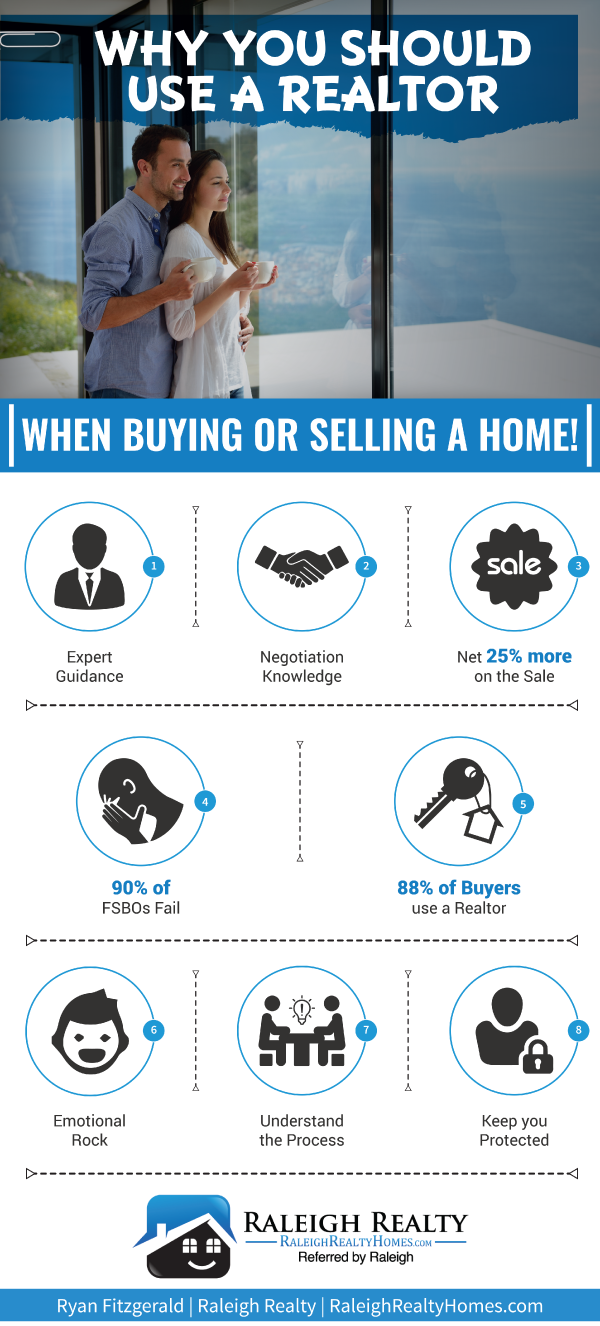How to Be a Successful Realtor
October 12th, 2023

How To Be a Successful Real Estate Agent
What makes a successful Real Estate Agent? Here are 10 essential qualities of a great Real Estate Agent!
Are you wondering how to be a successful Realtor? You may be early on in the process searching for information on the steps to becoming a Realtor or how much Realtors make, or possibly even the costs of becoming a Realtor. These three articles are great places to start before you jump into becoming a Realtor.
Being a Realtor or Real Estate Agent requires a diverse skill set that is unlike any other profession. Realtors do so many things for both buyers and sellers and are great at using strategies to make sellers more money. When I think of the qualities of a successful Realtor, there are 10 that come to mind that stand out more than any others.
You can leave your resume at the door because a sheet of paper with your credentials isn't going to get you far in this industry, you will want a tape measure, though (believe me, they come in extremely handy). Agents sometimes wear many hats- salespeople, marketers, entrepreneurs, and even therapists. In this post, we'll detail some of the skills that set up real estate agents for success.
Here are the skills you need as a realtor
Chapters
1. Perseverance
Many people are attracted to real estate because of its low barriers to entry and high earning potential. However, most who attempt to become a real estate agent ultimately quit quickly since a day in the life of a Realtor is not as easy as one would assume. The National Association of Realtors estimates that around 87% of real estate agents quit within five years of starting.
As you may imagine, building up a book of business and a reliable income in a commission-based profession is difficult. It's important to remain aware of the odds working against you and the necessity for perseverance. Those without an innate drive and strong will to succeed are unlikely to be successful in real estate.
The bottom line: Be prepared to hustle.

2. Lead Generation
Leads are the lifeblood of any business, especially in real estate. Lead generation is often the most difficult task for new real estate agents, and a lack of leads causes many to quit. Many new agents will decide to join a team and sacrifice up to 50% of their commission to be provided with a constant stream of leads.
Hence, an agent needs to develop a disciplined approach to lead generation. Most agents have their preferred methods of lead generation based on their strengths. For example, some leverage their existing relationships within their social network, and others take a stab at door-knocking in an attempt to find interested sellers. Successful new agents are willing to try different lead-generation strategies until they find methods that generate results.
The bottom line: Dig deep on lead generation.
3. Sociability
Consider the following two statistics:
-
67% of people only interview one agent during their home search per NAR.
-
The median duration of homeownership is around 13 years.
This means that out of 50 homeowners you may know in your extended social circle, approximately four will be selling their homes in the next year. Furthermore, you're likely to obtain at least three of these listings if you can be the first agent they approach about selling their home.
Therefore, agents can massively benefit from remaining accessible to their social network. Effective agents will find creative ways to frequently remind their extended network that they're in real estate. You want to be the first individual who comes to mind when someone in your social network thinks of buying or selling a home.
One of the ways you can do this in a manner that is equal parts creative and informative is to share blog articles that help people with valuable information. For example, how to get a mortgage approval is a great article your network will appreciate.
This concept extends beyond just your current social network. There is no shortage of stories involving agents striking up conversations with people in line for coffee or at the gym only to sell them a home a few weeks later. An overall amiable and warm person can open up many doors for real estate professionals.
The bottom line: Being a sociable and pleasant person helps.

4. Intimate Market Knowledge
Top agents push themselves to learn in-depth information about their market that cannot be merely gleaned from a hot sheet. While many agents may know the sale-to-list ratio for the past month, not many will know about upcoming developments and zoning changes in the area. Communicating this insider information adds value, establishes authority, and builds trust.
Intimate market knowledge is one of the best ways to provide value as a Real Estate Agent.
Additionally, learning about how the history of your city influenced the architectural styles that are present today further establishes yourself as an expert. Take into account the following anecdote provided by Trey Van Tuyl, a real estate agent in Atlanta:
"There's a small but culturally significant neighborhood in Atlanta called Cabbagetown, which comprises narrow shotgun-style homes near one another. When clients ask about the neighborhood, I can explain that Cabbagetown was formerly a factory site in the early 20th century and that most of the homes were constructed in that era. The small and narrow homes in the area were built as a cost-effective way to accommodate the factory's large immigrant workforce. My clients are further fascinated to learn that Cabbagetown's quirky name originated because residents could smell their neighbors' cabbage soup cooking because the houses are so close together."
This is a great example of when history and real estate can be combined to provide clients with an intimate understanding of a neighborhood. Knowing information like this positions you as a local who understands and appreciates a neighborhood's unique quirks.
This kind of knowledge will separate you from the pack and demonstrate that you are invaluable. Clients will be impressed by your deep understanding of the city, and it will become clear that you aren't just in real estate for a commission check - it's your passion.
The bottom line: Become a true market expert.
5. Time Management
Real estate agents need to stay on top of many dates and appointments. Within a single transaction, there may be many dates to remember. Here are a few examples:
-
When an offer expires
-
When inspections are scheduled
-
When the due diligence period expires
-
When earnest money "goes hard"
-
When closing occurs
These are just a few examples within a single transaction; productive real estate agents often have to juggle multiple transactions simultaneously. Remember that agents may also show homes to buyer clients, schedule listing appointments, and work on marketing campaigns simultaneously.
The many different dates and obligations a real estate agent juggles require exceptional time management skills, as dropping the ball can have disastrous professional and legal consequences. The same goes for a lack of punctuality or chronic forgetfulness.
The bottom line: Agents must manage their time effectively.

6. Goal Setting
Setting long-term and short-term goals is important as a real estate agent. By making a plan and mapping out your career trajectory, goals help agents work towards specific achievements. Setting quantifiable monthly goals, such as deciding how many properties you want to sell, can help keep agents motivated and driven.
The bottom line: Hold yourself accountable and celebrate any accomplishments.

7. Teaching Skills
A real estate agent is also someone who educates their clients about real estate terminology or the timeline of a real estate transaction. You'll need to be someone who has the requisite knowledge to answer real estate questions and can communicate them effectively and compassionately. This is especially true with first-time homebuyers, who often know little about buying a home.
One of the greatest advantages of being a resource for your clients is that it fosters high trust. You appear as if you're genuinely interested in helping someone rather than merely sticking around for a commission check. For folks who may be moving to the area, you'll best serve them by providing local information on what to expect when relocating. Essentially, it helps establish you as a competent authority.
Real estate agents who are highly knowledgeable also become a resource for their existing network of friends and family. Often, people have questions about real estate because they're considering buying or selling a home. When you're an accessible resource, these preliminary questions will naturally transition to questions such as "Can you help me sell my home?"
The bottom line: Be a real estate resource.
8. Social Media Knowledge
One of the best ways to become a successful real estate agent is to stay up to date on current technologies and have a presence on social media. In fact, 57% of realtors use social media daily, and 95% of realtors use email daily. Social media is a great way to network and a great space to showcase your industry knowledge and skills. Platforms like Facebook, Instagram, Twitter, and LinkedIn are good starting spots.
The bottom line: Create a social media account.

9. Networking
Real estate agents can provide added value to their clients by networking with "adjacent professionals." These adjacent professionals could be mortgage brokers, plumbers, electricians, general contractors, or landscapers. You want to position yourself as the connective tissue between someone's real estate problem and their solution. Take a page from Rick Harrison on Pawn Stars and be the person who always "knows a guy." You can even network at an open house with buyers or sellers.
For example, imagine you have a client who is considering the purchase of a fixer-upper but remains unaware of how much a renovation actually costs. Connecting your client with a general contractor who will provide an estimate before the client goes under contract provides immense value.
Clients will appreciate this added value and preach to their friends and family about how helpful and skilled you are. You're also fostering relationships with local professionals who appreciate the business you're giving them and will go the extra mile for your clients. It's a win-win-win situation.
Additionally, real estate agents can find value in networking with local real estate professionals. By doing so, you'll remain current on market conditions and may even have some business tossed your way by agents who are too busy to handle it themselves.
The bottom line: Have an expansive professional database.
10. Fierce Advocacy
One of your fiduciary duties as a real estate agent is to remain loyal to your clients. This should be taken to heart, and you should establish an ethos of fierce advocacy for your clients from contract to close.
Unfortunately, the public perception of real estate agents isn't stellar. Only 55% of people believe real estate agents have "very high" ethical standards. The primary complaint from consumers is that real estate agents do not genuinely care about their clients.
It should be your duty to help squash these negative associations by behaving ethically and transparently with your clients. Make it clear to them that should they have any regret and want to back out of their decision to buy or sell, you will support them with that decision.
This same advocacy is applicable when negotiating contracts on behalf of a buyer. Provide them with advice that puts their interests first and helps them accomplish their goals. Acting as a true advocate for your client will foster goodwill and trust and help generate raving fans and, ultimately, more business.
FAQs
Is it hard to be successful as a realtor?
Though being a realtor is not easy, it can be a very rewarding and fulfilling career choice as long as you promote yourself, network, and work towards your goals.
How do people become successful realtors?
Some of the best ways to become a successful realtor is to stay current on market trends, partner with other local agents, reach out to clients, specialize, and stick to a niche to stand out in the industry.
How to Be a Successful Realtor - Final Thoughts
Gratitude is one of the most overlooked qualities of a successful Real Estate Agent, and it is more of a personality trait than a skill. Gratitude is something you can practice. One of the biggest fundamental differences you can have to separate yourself from other Realtors is to appreciate every single client you work with. You'll be happier for it too.
Hopefully, you are better informed about some of the most valuable real estate agent skills. While it is a career that requires an amalgamation of skill sets, it can be a highly rewarding profession for those who can rise to the occasion.
Lastly, if you're a new agent, you should check out our blog post on first-year advice.

Ryan Fitzgerald
Hi there! Nice to 'meet' you and thanks for visiting our Raleigh Real Estate Blog! My name is Ryan Fitzgerald, and I'm a REALTOR® in Raleigh-Durham, NC, the owner of Raleigh Realty. I work alongside some of the best Realtors in Raleigh. You can find more of my real estate content on Forbes, Wall Street Journal, U.S. News and more. Realtor Magazine named me a top 30 under 30 Realtor in the country (it was a long time ago haha). Any way, that's enough about me. I'd love to learn more about you if you'd like to connect with me on Facebook and Instagram or connect with our team at Raleigh Realty. Looking forward to connecting!
Related Blogs





